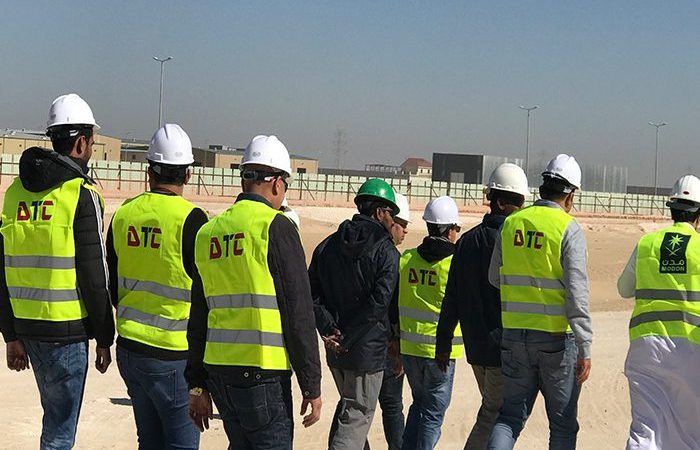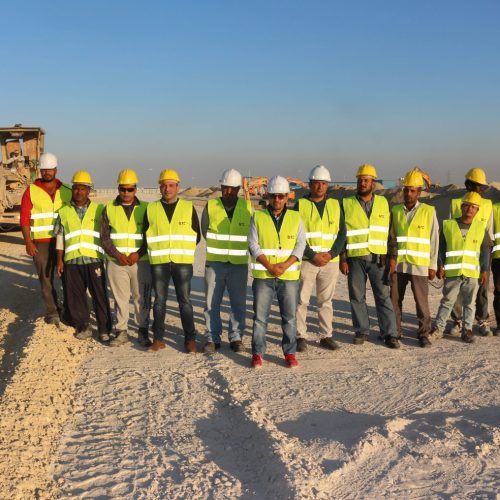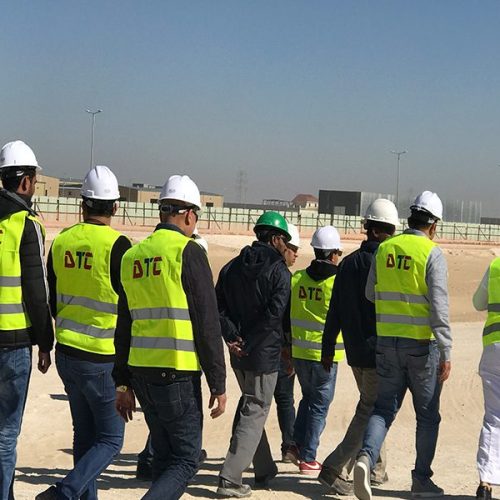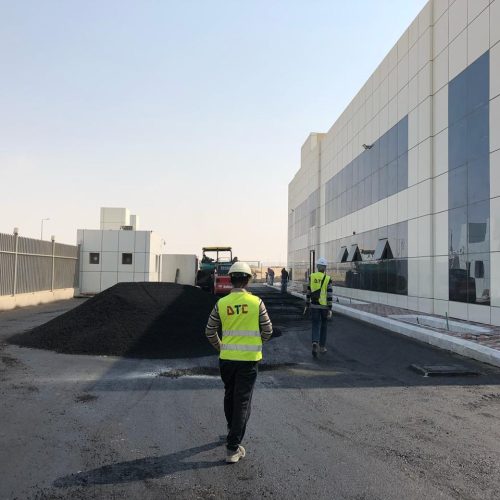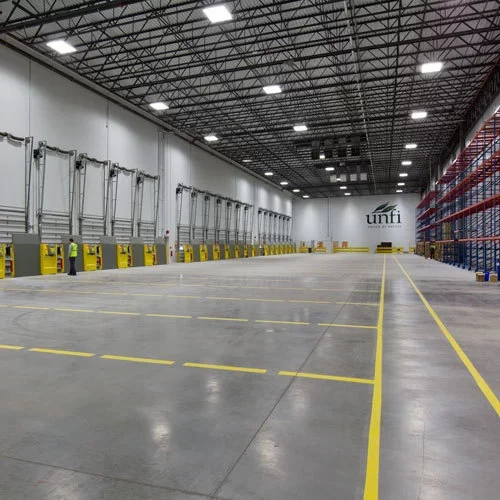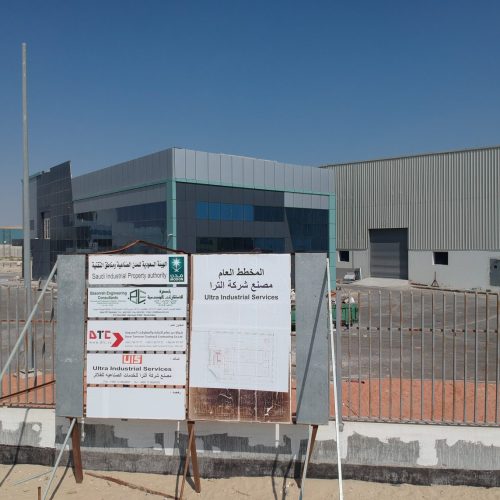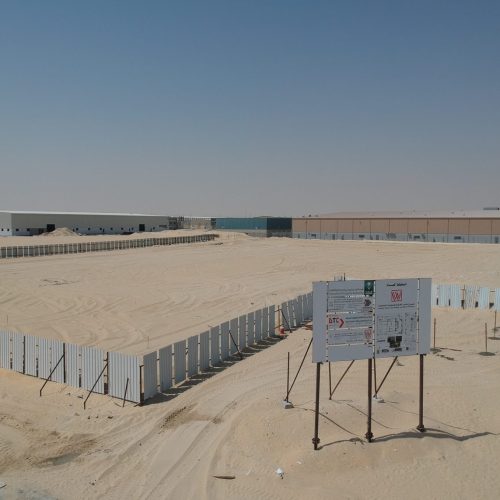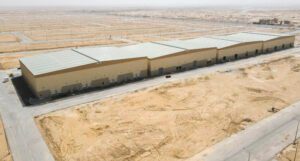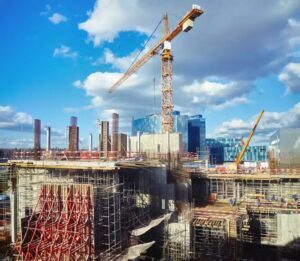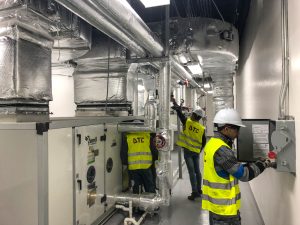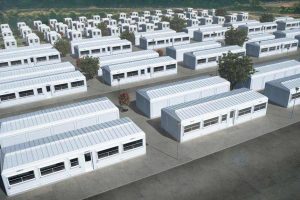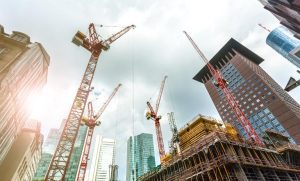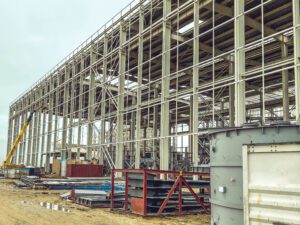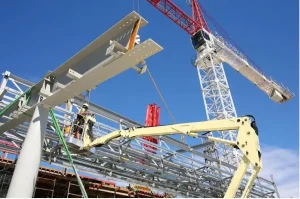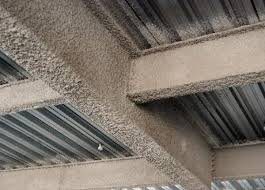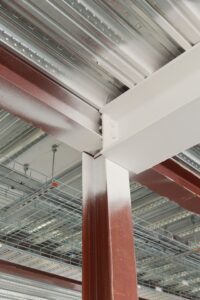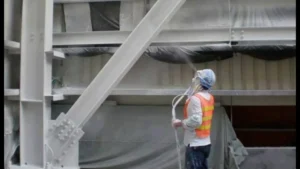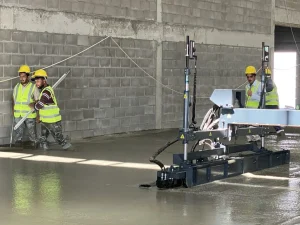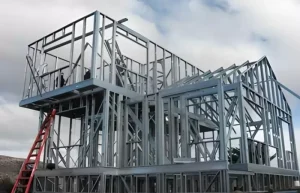industrial construction in Saudi Arabia
Introduction: The Rise of Industrial Construction in Saudi Arabia
Over the past decade, industrial construction in Saudi Arabia has evolved from traditional factory building into one of the most technologically advanced sectors in the Middle East. As part of the ambitious Vision 2030 framework, the Kingdom is investing heavily in manufacturing, logistics, energy, and infrastructure—making Saudi Arabia a regional powerhouse for industrial development.
Today, the industrial construction landscape blends engineering excellence, digital innovation, and sustainable design to meet the growing demands of national industrialization and global competitiveness. From steel factories in Jubail to logistics hubs in Riyadh and food processing plants in Dammam, the sector is driving diversification and creating thousands of jobs.
1. Vision 2030 and Industrial Transformation
Saudi Arabia’s Vision 2030 is not merely a policy document; it is a national transformation blueprint that directly impacts industrial construction. It seeks to diversify the economy away from oil dependency by promoting industrial, logistics, and renewable sectors.
Under Vision 2030:
-
Industrial cities and economic zones such as Jubail Industrial City, Yanbu Industrial City, and Sudair Industrial City are expanding at record pace.
-
The Saudi Authority for Industrial Cities and Technology Zones (MODON) oversees over 36 industrial cities across the Kingdom, covering more than 200 million square meters.
-
Investments in infrastructure, manufacturing, and logistics have surpassed $1.5 trillion, positioning the construction sector as a core engine of growth【setupinsaudi.com】.
2. Key Drivers of Industrial Construction Growth
Several major forces are propelling the sector forward:
A. Economic Diversification
Saudi Arabia is building a future beyond oil. With massive investments in automotive manufacturing, renewable energy, food processing, and pharmaceuticals, industrial facilities are becoming essential to the national GDP.
B. Giga Projects and Economic Zones
Mega-projects such as NEOM, The Line, King Salman Energy Park (SPARK), and Jazan Economic City have created an enormous demand for industrial-grade construction companies to develop logistics zones, energy hubs, and smart manufacturing clusters.
C. Infrastructure Modernization
Upgrading transport, water, and power networks supports industrial growth. The construction of logistics hubs near ports (King Abdulaziz Port in Dammam, Jeddah Islamic Port) ensures efficient supply chain connectivity.
D. Government Incentives
The Saudi Industrial Development Fund (SIDF) and National Industrial Development and Logistics Program (NIDLP) provide financing and incentives for local and international contractors, creating fertile ground for new industrial projects.
3. Industrial Construction Segments
A. Factory and Warehouse Construction
Saudi Arabia’s construction sector has become synonymous with turnkey industrial facilities—from cement plants and steel workshops to food factories and electronics assembly lines. Companies such as DTC General Contracting and BoldTarget Contracting are pioneers in delivering world-class industrial warehouses, pre-engineered buildings (PEB), and logistics facilities that comply with international standards【dtc.sa】.
B. Oil and Gas Facilities
The energy industry remains a key client for industrial contractors. ARAMCO, SABIC, and Ma’aden commission large EPC (Engineering, Procurement, and Construction) projects, including refineries, chemical plants, and distribution depots.
C. Industrial Zones and Parks
Industrial parks like Sudair Industrial City, Al-Kharj, and Jubail 2 are home to modern factory clusters, developed with efficient layouts, green zones, and modular building systems.
D. Power and Water Infrastructure
Power generation, desalination plants, and water treatment facilities represent another critical branch of industrial construction, enabling cities to sustain new manufacturing activity.
4. Leading Industrial Construction Companies in Saudi Arabia
1. DTC General Contracting Company
DTC stands out as one of the top industrial construction companies in Saudi Arabia, delivering complete turnkey projects for factories, warehouses, and industrial complexes. Their portfolio includes massive steel structures, PEB warehouses, and infrastructure works across Jubail, Dammam, and Riyadh【dtc.sa/article/industrial-construction-in-saudi-arabia-challenges-and-opportunities】.
2. BoldTarget General Contracting
Specializing in industrial steel structures, mechanical systems, and MEP works, BoldTarget has emerged as a trusted contractor for manufacturing and logistics projects. Their approach combines engineering precision, automation, and sustainability.
3. Al Bawani Co.
A major player known for large-scale industrial facilities, infrastructure, and EPC contracting across multiple sectors.
4. El Seif Engineering Contracting
Focused on energy, industrial, and civil projects, El Seif integrates modern technologies and project management tools to deliver complex facilities efficiently.
5. Nesma & Partners
With a strong presence in the oil & gas, power, and industrial sectors, Nesma is among the Kingdom’s most reputable general contractors.
5. Modern Construction Technologies in the Industrial Sector
The adoption of modern construction technologies has transformed how industrial facilities are designed and built in Saudi Arabia:
A. Pre-Engineered Buildings (PEB)
PEB systems are widely used for factories and warehouses, reducing construction time by up to 40% and lowering costs. Leading suppliers like Kirby Steel and Zamil Steel collaborate with local contractors to provide high-strength, thermally efficient structures.
B. Building Information Modeling (BIM)
BIM enables engineers and contractors to coordinate design and execution digitally, ensuring zero-conflict layouts and optimized material usage.
C. Modular Construction
Prefabricated components are assembled off-site, transported, and installed, enhancing speed and precision—especially valuable in remote industrial zones.
D. Smart Building Systems
IoT-based automation systems control lighting, HVAC, and energy consumption, promoting sustainability and operational efficiency.
6. Sustainability and Green Industrial Development
Environmental responsibility has become integral to industrial construction. The Saudi Green Initiative and Vision 2030 target net-zero emissions by 2060, pushing contractors toward eco-friendly designs and LEED-certified facilities.
Key practices include:
-
Solar-ready roof structures for factories
-
Recycled materials in steel fabrication
-
Energy-efficient HVAC and lighting systems
-
Water recycling and greywater treatment
Companies like DTC integrate sustainability in every phase—from design to commissioning—ensuring compliance with Saudi Building Code and LEED standards【dtc.sa/article/best-construction-company-for-building-factories-and-warehouses-in-saudi-arabia】.
7. Challenges Facing Industrial Construction
Despite rapid growth, the sector faces several operational and strategic challenges:
A. Supply Chain Delays
Fluctuations in global steel and material prices can impact project costs and timelines.
B. Skilled Labor Shortage
While localization programs promote Saudi employment, the demand for specialized engineers and technicians remains high.
C. Environmental Regulations
New environmental standards require advanced waste management and sustainable designs, increasing project complexity.
D. Financing and Project Risk
High upfront capital costs and long payback periods demand strategic partnerships and efficient risk management frameworks.
8. Opportunities and Future Outlook
A. Renewable Energy Construction
Industrial contractors are shifting towards renewable energy infrastructure—solar plants, hydrogen hubs, and battery factories—aligned with Vision 2030.
B. Localization and Saudi Workforce Development
Programs like Saudization and Human Capability Development encourage training and employing local talent across engineering, project management, and operations.
C. Export-Oriented Industrial Zones
New zones near ports are designed for export manufacturing, requiring logistics warehouses and production units tailored to global standards.
D. Smart Industrial Ecosystems
AI-driven monitoring, drone surveying, and robotic fabrication are becoming part of Saudi Arabia’s next-generation industrial ecosystem.
9. Regional Hotspots of Industrial Construction
A. Riyadh Region
Riyadh is home to Sudair Industrial City—one of the most advanced smart industrial zones, housing manufacturing, logistics, and technology facilities.
B. Eastern Province (Dammam, Jubail)
Dammam and Jubail are the industrial hearts of Saudi Arabia, hosting petrochemical, logistics, and steel manufacturing hubs. Industrial construction here focuses on heavy-duty factories and energy facilities.
C. Western Region (Jeddah, Yanbu)
The western region serves as a major trade and logistics gateway, with ongoing industrial projects connected to Jeddah Port and Yanbu Industrial City.
10. Conclusion: Building the Future of Industrial Saudi Arabia
Industrial construction in Saudi Arabia is not just about building factories—it’s about building the future. The Kingdom’s commitment to innovation, sustainability, and economic diversification is reshaping its industrial landscape. Contractors like DTC, BoldTarget, and Al Bawani are setting new benchmarks in design, safety, and efficiency—aligning perfectly with Vision 2030 goals.
As Saudi Arabia continues to attract international investment and expand its manufacturing capacity, industrial construction will remain the backbone of progress—bridging infrastructure with innovation and turning the Kingdom into a global industrial leader.

